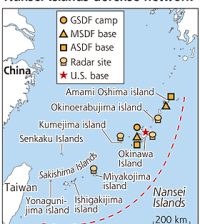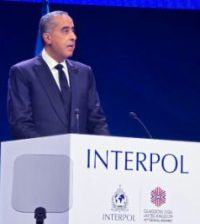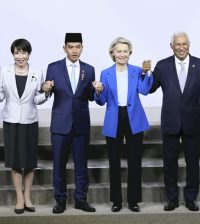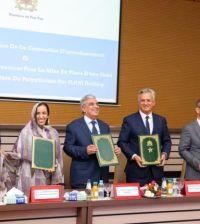- Washington “follows with interest” Morocco’s openness onto Africa (John Kerry)Posted 12 years ago
- The trial of South African Paralympic champion Oscar Pistorius opened in Pretoria on Monday.Posted 12 years ago
- USA welcomes efforts of King Mohammed VI in MaliPosted 12 years ago
- Egypt’s population reaches 94 millionPosted 12 years ago
- Mugabe celebrates his 90thPosted 12 years ago
- Moroccan Monarch to Build a Perinatal Clinic in BamakoPosted 12 years ago
- King Mohammed VI handed a donation of bovine semen for the benefit of Malian breeders.Posted 12 years ago
- Moroccan King’s strategic tour to Africa: Strengthening the will of pan African Solidarity and stimulating the south-south cooperation mechanisms over the continentPosted 13 years ago
- Senior al-Qaida leader killed in AlgeriaPosted 13 years ago
- Libya: The trial of former Prime Minister al-Baghdadi AliPosted 13 years ago
King Mohammed VI holds phone talks with Ban Ki-moon following the Release of the Report on the Sahara
The Moroccan King Mohammed VI held on Saturday a phone conversation with UN Secretary General Ban Ki-Moon, says a release of the Royal office.
The talks covered latest developments and the present timetable related to the Moroccan Sahara issue, says the release.
On this occasion, The Moroccan Sovereign reiterated Morocco’s constant commitment and constructive cooperation to reach a final political settlement to this regional dispute, within Moroccan sovereignty.
Mohammed VI further drew the UN secretary General’s attention to the imperative need to preserve the negotiations parameters as they were defined by the Security Council, safeguard the presence framework and modalities of the UN involvement and avoid biased approaches and risky options, the statement goes on.
Any straying from this track will be fatal for the ongoing process and holds dangers for any UN involvement in the issue.
The conversation also covered the King’s sustained actions and laudable initiatives for the stability and development of the African continent.
This conversation came just after the release of the annual report of the United Nations Secretary General on the “Situation in the Western Sahara” has been released on Thursday.
The report, which was circulated to the members of the Security Council, was submitted pursuant to Security Council resolution 2099 of 25 April 2013 by which the Council extended the mandate of the United Nations Mission for the Referendum in Western Sahara (MINURSO) until 30 April 2014.
The report, which was obtained by MWN, covers the latest developments in the Sahara since the Secretary General’s report submitted to the council on April 8 2013, and describes the situation on the ground, the status and progress of the negotiations and the existing challenges to the Mission’s operations.
But unlike last year, this year’s report doesn’t include a clear recommendation from the UNSG to extend the mandate of the MINURSO to include a human rights monitoring system in the Sahara and the Tindouf camps.
However, while welcoming the efforts made by Morocco to improve human rights in the Sahara and both parties’ readiness (Morocco and the Polisario) to cooperate with United Nations human rights bodies, he stressed that “such positive developments should contribute to a more balanced and comprehensive monitoring of human rights.
“The end goal nevertheless remains a sustained, independent and impartial human rights monitoring mechanism, covering both the Territory and the camps,” he said.
In his report to the Security Council last year, Ban Ki-moon made a clear recommendation on the need to establish a human right monitoring mechanism in the Sahara and the Tindouf camps. “Given ongoing reports of human rights violations, the need for independent, impartial, comprehensive and sustained monitoring of the human rights situations in both Western Sahara and the camps becomes ever more pressing,” the UN chief had said.
In this year’s report, the UNSG welcomes “Morocco’s cooperation with the Special Procedures of the Human Rights Council. “I note with satisfaction the steps which Morocco has taken, such as those related to CNDH and the military tribunals.”
One of the highlights of the report is that the UN chief calls on the parties to engage “seriously” on the content of a political solution and the form of self-determination.
“I call upon the parties to recognize the need for urgent progress and to engage seriously on the two core issues in the Security Council’s guidance – the content of a political solution and the form of self-determination,” Ban Ki-moon says is his report to the Security Council.
The Secretary General tacitly admits that the approach adopted by the United Nations so far has not yielded the expected solution, hence the need to adopt a new approach. In this regard, he emphasized that if, by April 2015 no progress has been made in the negotiations between Morocco and the Polisario, the Security Council will have to reconsider the framework of the negotiating process, which started in April 2007.
“I ask that the international community, and in particular the neighboring states and the members of the Group of Friends, provide support for this endeavor. If, even so, no progress occurs before April 2015, the time will have come to engage the members of the Council in a comprehensive review of the framework that it provided for the negotiating process in April 2007,” he added.
According to the Japanese International Law Expert, professor Matsumoto Shoji – President of Sapporo Institute for International Solidarity- , the report is clear in its appreciation for the efforts made by Morocco in the field of improving and advancing the implementation of human rights, and in return the report raises attention to the need to monitor the situation in Tindouf camps hosted by Algeria. This is what inevitably international community should in the next phase apply for the state responsibility law measures against Algeria which is not only hosting and sponsoring the separatist movement of Polisario, but blessing its “Internationally wrongful acts against Morocco and neighboring countries.




